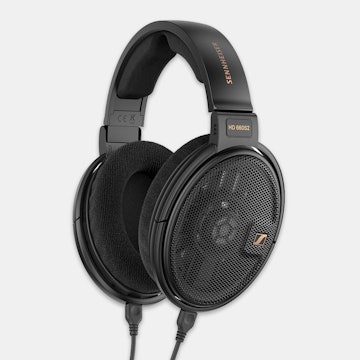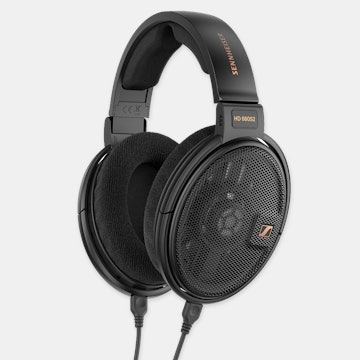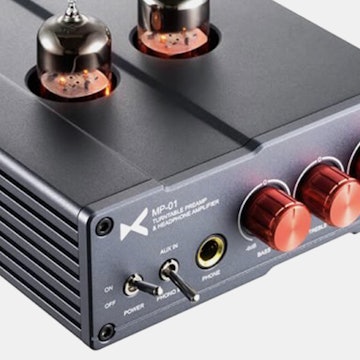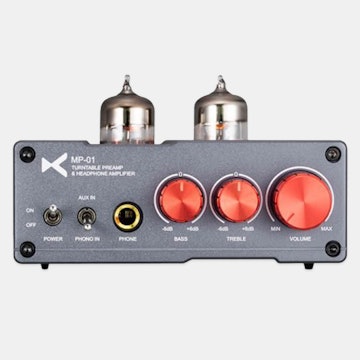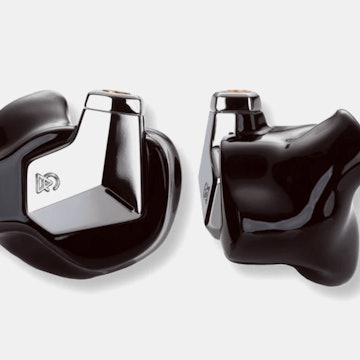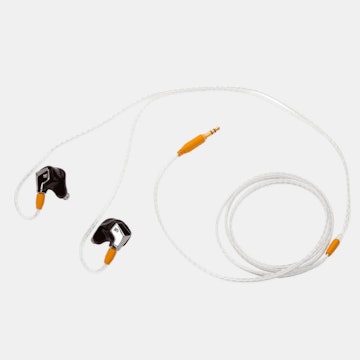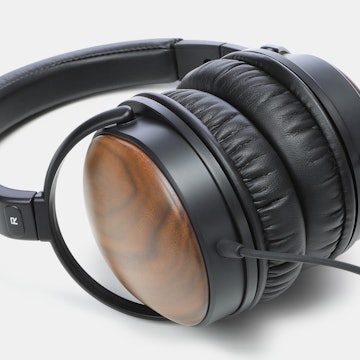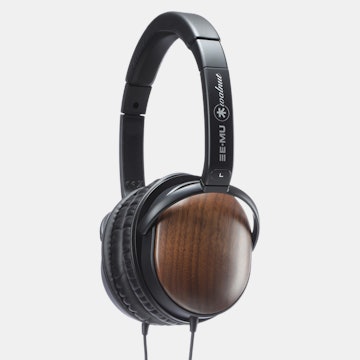Click to view our Accessibility Statement or contact us with accessibility-related questions



















Showing 1 of 8 conversations about:

Arjestin
363
Jun 1, 2019
bookmark_border
So this $260 box converts a digital signal over USB to a digital signal over coax/opt/AES/IIS? Thant's it... no DSP? It's basically a USB adapter, ha?
Unless you are dead set on using a DAC that has no USB input (like a Geshelli Labs ENOG), please see previous post with a black hole illustration.
ccc888
60
Jun 1, 2019
bookmark_border
Arjestinwhat a DAC’s internal usb interface does is converting data package comes into usb to I2S signal, then feeding it to the DA chip.
The usb interface is responsible for reconstructing signal clock. This is essential for the dac to do the D to A conversion, to put it simply, the lower the clock jitter is the better sound you would get.
For some DACs the internal USB interface could output poor quality I2S, so through asynchronous USB interface, they get poor sound. But if you use DDC like U16, you can get high quality high quality spdif or I2S signal out of it. The DAC’s spdif or I2S input will take advantage of U16’s high quality internal clock to get a better sound than the poor usb interface.
If your dac has a good internal usb interface, you don’t need this, but for some DAC product with bad USB interface , a 260USD DDC could be a very good investment.
(Edited)

Arjestin
363
Jun 1, 2019
bookmark_border
ArjestinBTW Gustard, if you ever decide to make a digital signal splitter with 1 USB input and 4 USB outputs.. yeah, I can see myself paying $260 for it.

JJayJJ
472
Jun 3, 2019
bookmark_border
ccc888"For some DACs the internal USB interface could output poor quality I2S, so through asynchronous USB interface, they get poor sound. "
This makes zero sense. Let me explain. If you have a DAC that is so bad, that you need a device of this cost, you're on the brink of losing your grip with reality.
It stands to reason the device you're trying to fix MUST be more than the cost of this thing, if we accept that as a constant (the contrary being lunacy buying a $100 DAC for instance, that needs a $300 "reclocker"). Then we still have a problem. You have DACs like the D50, DX7, DX3 Pro (a DAC+AMP with a screen and even Bluetooth input) all of which hover at a price lower than this Gustard.
So when you say "if you have a bad DAC", why would I add another device to the chain to fix it, when I can do away with both, and perhaps get something with more utility AND actually measured performance at the top of currently measured devices, all at a price any normal person can approach. To top it off, these items come at lower, or around the price of this thing (of which use is debatable and dubious at best).
This device simply has no reason to exist in the current time period. I have tried rationalizing all sorts of plausible scenarios. Not a single one exists where this device makes sense.
verifonix
1181
Jun 3, 2019
bookmark_border
JJayJJ> This makes zero sense. Let me explain. If you have a DAC that is so bad, that you need a device of this cost, you're on the brink of losing your grip with reality.
Fully agree. I only see the sense for a DDC device if one *needs* optical/coaxical or AES/EBU for whatever reason. Especially that last one can be useful for other (Pro) interfaces :)
(Edited)

ElectronicVices
2940
Jun 4, 2019
bookmark_border
JJayJJThis is a niche product, for many it's a waste of time but that is not true for all. The primary market for these are people with older DAC's that they are otherwise happy with but lack USB altogether or have a less than optimal implementation. Depending on the downstream DAC the I2S over HDMI can also present jitter reduction and other benefits as the chain is slaved to one master clock. DAC's have been available for decades, quality USB implementation is a more recent advancement.

JJayJJ
472
Jun 4, 2019
bookmark_border
ElectronicVicesYes but I’ve explained, these newer DACs cost less than this thing, with actually verified performance metrics. I’ve yet to see much of anything with the employment of external clockers in a wide scope of tests. All the more perplexed when I see external clockers using some form of exotic radioactive clocks for precision ($2500 for example).
Seems like a life support product in the modern day, or something required in industrial applications or mission critical stuff using old gear that has been certified and guaranteed for certain deployments using older gear.

ElectronicVices
2940
Jun 4, 2019
bookmark_border
JJayJJFor DAC's with an I2S input they are typically multiples of this cost... if you're hanging on to an old Theta or other DAC, they too were multiples of this cost. If your needs don't fit either of those buckets then you are better off buying something else. You post a lot about "this makes no sense"... just because it doesn't make sense to you doesn't mean others have issues understanding the purpose. Different strokes for different folks... you won't find me obsessing over a few dbs or .0X% of THD+N (aka SINAD for you ASR folks) as there are no brownie points for being "more inaudible" than another device that already presents inaudible levels of distortion and noise.

JJayJJ
472
Jun 5, 2019
bookmark_border
ElectronicVices"Jjust because it doesn't make sense to you doesn't mean others have issues understanding the purpose. "
This is such a ridiculous statement, I don't know where to start.
First off, I am referring to the general population in the modern day, and I stand firm when I say, it makes little sense. If you need a scientific journey explaining the context of why this is something that would resonate for the majority, then I'm sorry, you can go and commision that yourself. Not in the liberty to explain away common financial sense.
Second, how does something making sense, or not making sense conclude to the understanding you've made that states: "doesn't mean others have issues understanding the purpose". The purpose isn't up for debate, we know the function of the device and it's purpose. You're arguing a non-sequitur.
Third, with the understanding we now have from my second point that I just made "different foks, different strokes" isn't a relevant statement. Nobody is saying you have to conform with sanity. You are completely free to engage in anything irrational as you please. So this isn't a topic of contention.
Lastly, no one is obsessing with anything, so stop painting a picture that doesn't exist with what's going on over here. I simply state, and rational logic concludes, you can get something far more performing instead of using money on this for the sake of preserving some I2S interfaced device you may have. You cut down on all undesirable metrics (less power use, less hassle, less devices, less clutter, less wasted space), and still get something that potentially outdoes devices of yesteryear that are slowly coming to the surface about how poor their performances actually is.
If you're going to sit here and seriously attempt to argue "different strokes different folks" as a reasonable thing to say in attempts of buying a device like this in the modern day from the aspect of getting a better setup at the end of the day, you've lost your mind. But if you're trying to say some people want to keep their old devices for whatever reason (sentimental value or whatever else, even ridiculous voodoo beliefs like I2S being a superior interface), then that's fine.
But please don't make a mockery of yourself attempting to argue the former rather than the latter.
(Edited)

ElectronicVices
2940
Jun 5, 2019
bookmark_border
JJayJJI stopped reading at the second line, apparently you know everything and can't be reasoned with.

JJayJJ
472
Jun 5, 2019
bookmark_border
ElectronicVicesYou saw it fit enough to tell me you didn't read what I wrote, and then give a commentary about my level of "knowing".
Seek help fellow stranger.. Reason is definately lacking with you, to the contrary of your conclusion about me.
(Edited)
ccc888
60
Jun 6, 2019
bookmark_border
JJayJJI think some DAC’s usb interface is overrated. They mostly use off the shelf modules or solution directly from XMOS or Amanero. There is room for improvement. In fact, I never have good experiences with XMOS based DACs.
There are many U16 users in China stating that their $2000 level DAC still benefits from it. You thought Gustard X26’s measurement is good enough(check ASR), but the it’s designer said U16 has a better designed interface than X26’s internal one. The designer recommends the I2S as the connection between the X26 and U16 to get the maximum performance out of the DAC. Another example is holo audio spring, its designer also said that the best interface of the DAC is I2S.
I would recommend some XMOS based DAC users to try this one, but not Chord users. Personal experience is Chord DAC’s USB interface is good enough, so doesn’t benefit much from U16.
I agree that its target consumers are not $100 level DAC users. However, one should notice that some $1000 even $2000 level DACs use the same XMOS solution as the $100 level ones. Those DAC’s owner should try U16, see if it makes any difference.
(Edited)

JJayJJ
472
Jun 6, 2019
bookmark_border
ccc888Few problems.
What at exactly are these purported differences. And what exactly is “better” when paring this thing up with a $2,000 Dac?
Second, it’s quite illogical to be okay with buying a $2,000 Dac, only to require supplemental devices in order to enhance it, that either means the Dac is bad itself, or your priorities have no sense.
Third, you claim USB DACs aren’t good in some way. If you have any proof, I’d like to see it. As things stand I2S isn’t a better interface strictly speaking when it comes to audibility, it’s a somewhat weird interface that rightfully many non-professional devices don’t have (except appropriation to audiophile marketed stuff, since there is belief in only using pro gearbox is actually worth gear).
Fourth, what the designer claims is irrelevant if he can’t prove it with measurements. We’re not going to take his word for it and gamble with $2,000. Likewise when you claim that this Gustaed performs well, I don’t think it performs much well, but it’s main problem is it’s pointless existence.
Finally, you know of ASR, you should know by now a claim like “I never have good experience with USB DACs” needs to be elaborated on. If you’re talking about sound quality, then you need more than elaboration, you need proof. Proof in either measurements, or proof in blind tests where you can distinguish with I2S source or USB source. Without that, these claims don’t hold much water :/
ccc888
60
Jun 7, 2019
bookmark_border
JJayJJPlease look carefully, I said I never had good experience with "XMOS based" DACs, not ALL USB DACs.
I personally didn't test the device, but I have a friend who is a professional audio equipment engineer who design DAC and DDC himself. He performed tests on the X26 with U16 when they just came out. He proved that U16 does improved the test result, not significantly, but it does. Then he bought this setup for himself after the tests. This is the reason I think it might work.
If you think the USB interface on your DAC is good enough or you think this DDC is too expensive. Then it's obvious you are not the target customer.
I never said all USB DACs are bad, I said some DAC has bad USB interface. Even for some expensive DACs there is still room for USB performance improvement, again, not ALL of them.
I trust my friend's test result but I would like see it being endorsed by test result from other sources too. I think ASR is going to test U16 eventually. Let's see what happens.
(Edited)

jkorten
9
Oct 26, 2020
bookmark_border
verifonix@verifonix That's all you got? No experience, just going to piss on it? Prove you have any experience here.
verifonix
1181
Oct 27, 2020
bookmark_border
jkorteni'll pass mate enjoy your "significant improvement"s
(Edited)
verifonix
1181
Oct 30, 2020
bookmark_border
jkortenYou are an utter audio fool if you really bought a master clock for your DAC
https://www.soundonsound.com/techniques/does-your-studio-need-digital-master-clock
Overall, it should be clear from these tests that employing an external master clock cannot and will not improve the sound quality of a digital audio system. It might change it, and subjectively that change might be preferred, but it won't change things for the better in any technical sense. A‑D conversion performance will not improve: the best that can be hoped for is that the A‑D conversion won't become significantly degraded. In most cases, the technical performance will actually become worse, albeit only marginally so. But sure, spend your money and believe in your faeries.
Overall, it should be clear from these tests that employing an external master clock cannot and will not improve the sound quality of a digital audio system. It might change it, and subjectively that change might be preferred, but it won't change things for the better in any technical sense. A‑D conversion performance will not improve: the best that can be hoped for is that the A‑D conversion won't become significantly degraded. In most cases, the technical performance will actually become worse, albeit only marginally so. But sure, spend your money and believe in your faeries.
(Edited)

jkorten
9
Oct 30, 2020
bookmark_border
verifonixWell you've just exposed your ignorance of the entire field if you think I'm listening to my digital audio through an analog to digital converter as cited in the article you posted. It appears you don't even have knowledge of the basics of audio here. So why are you picking fights in an audiophile forum? We use digital to analog converters to listen to music. I do use analog to digital converters when I record music, but I've chosen one with a reference quality clock, because today (10 years after the article you point to - which is eons in digital sound reproduction technology years) the effect of jitter is well appreciated. But the guy in the article you quote does not even listen to the difference in sound. Yet he makes a claim about how they "must" sound. If you live in NYC come on over and listen for yourself! That's where the proof point is.
ccc888
60
Nov 3, 2020
bookmark_border
JJayJJThis U16 has been measured on ASR. The result is not bad but also not terrific. I used it for a while found out it has similar performance as the internal USB interface in the Chord Qutest, but noticeably better than the Allo Digione's coaxial output. I also found some bugs in this thing's firmware. I will not recommend this product. Now I'm using the Singxer SU-2, not because it offers better performance, but because I need it to feed data to Titans Audio Helen reclocker.
verifonix
1181
Nov 4, 2020
bookmark_border
ccc888The U16 result is actually quite bad, high jitter by any standard.



